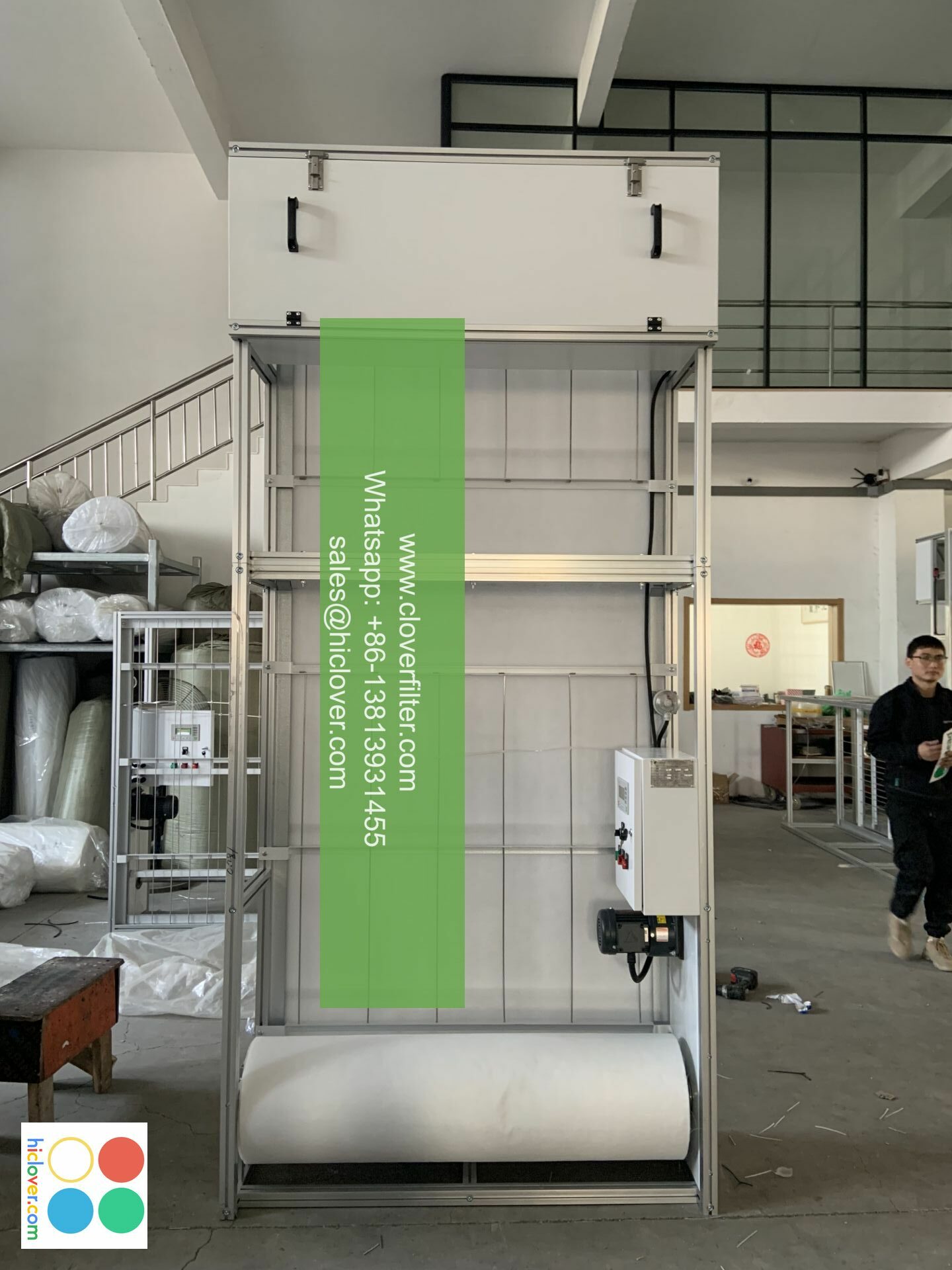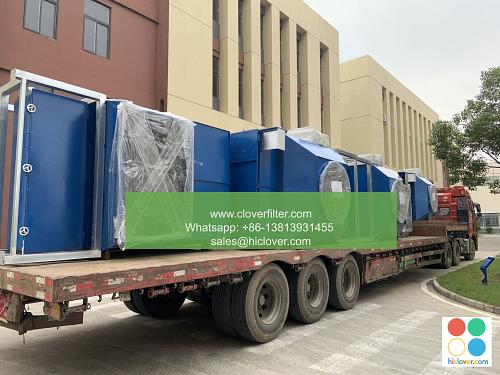The Science Behind Automatic Roll Air Filters: Improving Air Quality in Montreal Semiconductor Factories

The semiconductor industry is a significant sector in Montreal, with numerous factories operating in the region. These factories require high-quality air to produce microchips and other electronic components. One crucial aspect of maintaining good air quality in these facilities is the use of automatic roll air filters. In this article, we will explore the science behind these filters and how they contribute to improving air quality in Montreal semiconductor factories.
Automatic roll air filters are designed to remove airborne contaminants, such as dust, pollen, and other particles, from the air. These filters use a roll of filter media, typically made of a synthetic material, which is wound onto a spool. As the air passes through the filter, the contaminants are trapped, and the clean air is released back into the environment. The filter media is automatically advanced as it becomes saturated with contaminants, ensuring a consistent level of air quality.
The science behind automatic roll air filters lies in the principles of filtration and aerodynamics. The filter media is designed to capture particles of a specific size range, typically between 0.3 and 10 microns. This range includes most airborne contaminants found in semiconductor factories, such as dust, smoke, and chemical fumes. The filter media is also designed to minimize pressure drop, which is the loss of air pressure as it passes through the filter. This is achieved through the use of a low-resistance filter media and a optimized filter design.
In Montreal semiconductor factories, automatic roll air filters play a critical role in maintaining good air quality. The filters are typically installed in the air handling systems, where they remove contaminants from the air before it enters the factory. This helps to prevent contamination of the microchips and other electronic components, which can be damaged by airborne particles. The filters also help to reduce the risk of airborne diseases, such as respiratory problems, among factory workers.
The benefits of using automatic roll air filters in Montreal semiconductor factories are numerous. Firstly, they help to improve the yield of microchips and other electronic components by reducing contamination. Secondly, they help to reduce the risk of airborne diseases among factory workers. Thirdly, they help to minimize downtime and maintenance costs associated with filter replacement. Finally, they contribute to a cleaner and healthier environment, which is essential for the well-being of factory workers and the surrounding community.
In addition to their technical benefits, automatic roll air filters also offer economic advantages. They can help to reduce energy costs by minimizing the pressure drop across the filter, which can lead to significant energy savings. They also help to extend the life of the air handling systems, which can reduce maintenance and replacement costs. Furthermore, they can help to reduce the cost of producing microchips and other electronic components, which can lead to increased competitiveness in the global market.
Despite the many benefits of automatic roll air filters, there are also some challenges associated with their use. One of the main challenges is the need for regular maintenance, which can be time-consuming and costly. The filters must be regularly inspected and replaced to ensure optimal performance, which can be a significant burden on factory maintenance staff. Another challenge is the potential for filter failure, which can lead to a decrease in air quality and a loss of productivity.
To overcome these challenges, it is essential to implement a comprehensive maintenance program, which includes regular inspection and replacement of the filters. It is also important to train factory maintenance staff on the proper use and maintenance of the filters, which can help to minimize downtime and maintenance costs.
In conclusion, automatic roll air filters play a critical role in improving air quality in Montreal semiconductor factories. They help to remove airborne contaminants, prevent contamination of microchips and other electronic components, and reduce the risk of airborne diseases among factory workers. While there are some challenges associated with their use, these can be overcome through regular maintenance and training. By using automatic roll air filters, Montreal semiconductor factories can improve their yield, reduce their maintenance costs, and contribute to a cleaner and healthier environment.
FAQs
Q: What is the purpose of automatic roll air filters in semiconductor factories?
A: The purpose of automatic roll air filters is to remove airborne contaminants, such as dust, pollen, and other particles, from the air to improve air quality and prevent contamination of microchips and other electronic components.
Q: How do automatic roll air filters work?
A: Automatic roll air filters use a roll of filter media, which is wound onto a spool, to capture airborne contaminants. The filter media is automatically advanced as it becomes saturated with contaminants, ensuring a consistent level of air quality.
Q: What are the benefits of using automatic roll air filters in semiconductor factories?
A: The benefits of using automatic roll air filters include improved yield, reduced risk of airborne diseases, minimized downtime and maintenance costs, and a cleaner and healthier environment.
Q: What are the challenges associated with using automatic roll air filters?
A: The challenges associated with using automatic roll air filters include the need for regular maintenance, potential for filter failure, and the need for training factory maintenance staff on the proper use and maintenance of the filters.
Q: How can the challenges associated with using automatic roll air filters be overcome?
A: The challenges associated with using automatic roll air filters can be overcome through regular maintenance, training factory maintenance staff, and implementing a comprehensive maintenance program.

